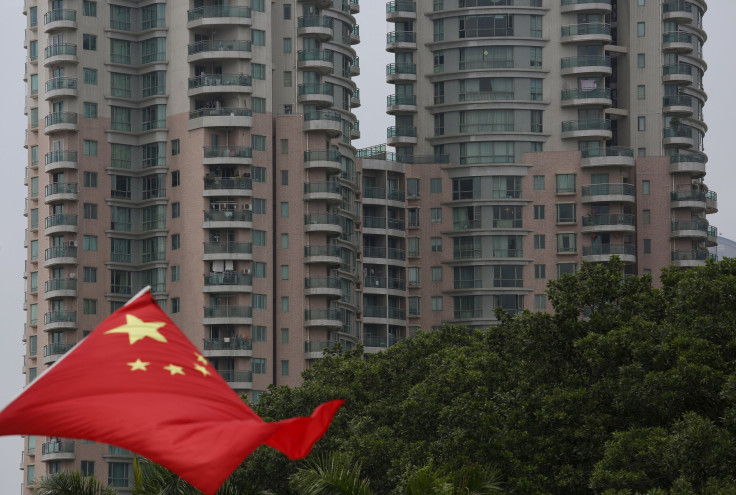China Relaxes Rules To Let Foreigners Purchase More Real Estate, In Attempt To Boost Slowing Economy

SHANGHAI -- China has relaxed rules on property sales to foreigners, in a move seen as aimed at boosting the country’s real estate sector amid a slowing economy.
Rules that required foreigners to live in the country for a year before they could invest in property are to be abolished, the country’s commerce ministry said late Thursday. Limits on the number of properties foreign indviduals and businesses can purchase will also be relaxed, according to state media. Since 2010, foreign buyers have only been allowed to own one property for their personal use.
The new rules would also make foreign businesses exempt from paying their company’s full registered capital to the Chinese authorities before taking out loans to buy real estate.
Restriction on property sales to foreigners were first introduced in 2006, in an effort to prevent speculation and cool a real estate market that was seen to be overheating, and in the process pricing many ordinary Chinese citizens out of the centers of major cities.
The reversal of the policy is another reminder of the current pressures on the Chinese economy -- and the real estate sector in particular. After many years when it was a major motor of Chinese economic growth -- with new construction creating a huge demand for steel, concrete and other raw materials -- the country's property market has slowed dramatically over the past three years. Further regulations, restricting access to housing loans for Chinese citizens, and a generally slower economy, saw growth in real estate sales slump.
The knock-on effect on industry, and local governments, which have previously derived at least 30 percent of their income from land sales has been significant. Investment in new property development fell to about 4.3 percent in the first seven months of the year from around 14 percent a year earlier, Bloomberg reported this week.
Many developers have been struggling to move unsold housing stock. Some, including Shenzhen developer Kaisa, have experienced financial problems. Kaisa became the first Chinese firm to default on a foreign currency denominated bond payment earlier this year, though it has now resumed trading in several Chinese cities.
And with other sectors of the economy seeing slower growth too, the authorities have begun relaxing some of the restrictions on property purchases by domestic investors over the past year.
Extending the relaxation of rules to foreign buyers is now possible because the market has "matured" in recent years, one Chinese analyst told the China Daily. The paper said foreign purchases would no longer distort the market, since demand would be “marginal compared with the huge inventories across the nation.”
Analysts said China’s recent cut in interest rates and, this month’s devaluation of the yuan, may make Chinese property more attractive to foreign buyers. However some restrictions will remain in individual cities -- Shanghai currently limits foreign buyers to a single property in the city, while Beijing has similar limits.
And the Shanghai Daily newspaper suggested that the impact of the change would be relatively limited, since foreign investment still accounts for a small proportion of China’s real estate sector -- just 0.5 percent of home purchases last year, according to some estimates, while total sales of housing to foreigners amounted to 18.5 billion yuan (about $2.9 billion) in the seven months to July -- down almost a quarter on a year earlier, according to the South China Morning Post.
Observers also said that Chinese prices are now significantly higher than they were when the restrictions on foreign purchases were first introduced, which is likely to deter speculation.
And despite the recent slowdown, signs of the boom in China’s real estate market over the past decade remain. China’s richest man, Wang Jianlin, gained his wealth from heading one of the country’s biggest property developers, Dalian Wanda. Despite reportedly seeing more than $3 billion wiped off his personal fortune in stock market falls earlier this week, Wang's businesses have continued their aggressive policy of overseas acquisitions. Wanda this week spent $650 million to buy World Triathlon Corp, the U.S. based company that organizes Ironman endurance competitions. Earlier this year it also bought stakes in Spanish soccer club Atletico Madrid, and Swiss-based sport marketing company Infront Sports and Media.
Yet in current market conditions, even Wanda has shown signs of consolidating. Though it has announced plans for a continuing expansion of its mixed-use Wanda Plazas around China, it is increasingly seeking to use outside funds to pay for projects. As well as a planned share listing in China later this year, Wanda has also announced a tie-up to develop projects jointly with Vanke, China’s biggest residential property developer. And Wang Jianlin is reported to have said this week that China may have to get used to a GDP growth rate of 5 percent or 6 percent, compared to the current official target of 7 percent for the year.
© Copyright IBTimes 2024. All rights reserved.





















